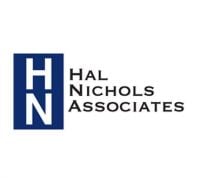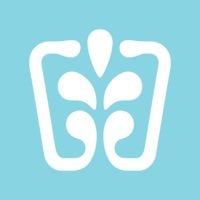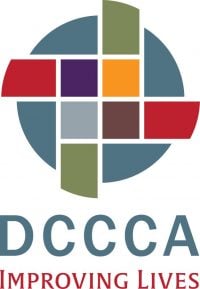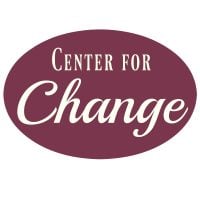Alcohol Safety Action Project
Drug Rehab Center in Kansas City, Kansas
ASAP is a Kansas City facility that offers a range of treatment options for individuals struggling with substance abuse, including alcohol, opioid, and drug addiction, with a focus on providing a holistic approach to rehabilitation and long-term support.
About Alcohol Safety Action Project in Kansas
The Alcohol Safety Action Project (ASAP) is a facility in Kansas City, Kansas that helps individuals struggling with substance abuse issues, including alcohol abuse, opioid addiction, and drug addiction. ASAP offers a variety of treatment levels and modalities to individuals, including aftercare support, drug rehab, intensive outpatient care, and regular outpatient services. They focus on providing a holistic view of rehabilitation services, such as family therapy, group therapy, individual therapy, and life skills. These treatments are designed to help individuals reach their recovery goals, while providing long-term support to ensure lasting results.
ASAP is a highly trained and experienced facility, staffed by seasoned professionals with valuable experience in addiction treatment. As a licensed and certified provider, the team at ASAP strive to provide compassionate and caring support to individuals in need. They have the tools and resources to deliver quality treatment tailored to each individual's unique needs. ASAP provides a safe and supportive environment for individuals seeking to regain control and make progress in their journey to recovery.
Genders
Ages
Modality
Additional
Conditions and Issues Treated
Substance Abuse Treatment is important when getting sober, as it helps addicts learn the skills they need to live a clean life. There are many different kinds of recovery treatment, including but not limited to medication-assisted therapy, behavioral therapeutic approaches, self-help groups, and counseling. Each treatment has its benefits that help addicts recover.
Counseling can help addicts learn the skills they need to live sober lives. It can be used to treat underlying mental health issues, like depression or anxiety, that could lead to relapse. Counseling can also help people find work, deal with family problems, and learn to manage living without drugs.
With so many people addicted to opioids, we need to help those who want to quit. The cycle begins when opioid addicts take opioids for a painful injury. When someone starts taking their medication differently or in excess, it means they’re addicted and at risk of overdosing.
In , detoxing from these types of treatments is the most effective way to beat this. Most facilities begin with medical assistance and then provide counseling services; rehabilitation follows after successful treatment.
Levels of Care Offered
This center offers a variety of custom treatment tailored to individual recovery. Currently available are Aftercare Support, Drug Rehab, Intensive Outpatient, Outpatient, with additional therapies available as listed below.
An intensive outpatient program (IOP) is effective for drug rehab, but it can take six months to several years to complete. It’s the most popular type of drug rehab program in the United States. One example of a successful IOP success story is actor and comedian Chris Rock, sober since 1990.
An IOP allows participants to spend nights at home while attending meetings throughout the day. It’s a good way for drug addicts to make a recovery plan in an outpatient setting while still supporting their loved ones.
Alcohol or drug addiction, or co-occurring disorders, are treated in an outpatient program. The patient must attend therapy and other programs at the facility but can return home each night.
Outpatient treatment allows recovering addicts to live at home while receiving addiction treatment. Outpatients can attend group sessions for a few hours per week. Outpatients may also continue to work full time and study/attend school without interruption if they choose.
The accomplishment of completing a drug or alcohol treatment program is just the first step. Once that is complete, aftercare support comes into play. This includes helping people adjust to life without substances outside of guidelines with assistance like getting sober living accommodations and career counseling and AA/NA programs for those who are struggling between sobriety or want continued help in maintaining it once they have completed their initial rehabilitation at an addiction facility.
Aftercare comprises services that help recovering addicts readjust to normal day-to-day activities while working on specific issues. These problems include psychiatric issues, family problems caused by substance abuse, continuing education pursuits if desired during rehab, etc. These can last up to one year+ depending on what’s needed most urgently upon completion of earlier stages.
Therapies & Programs
Different people react differently to various treatment options. Some drug rehabilitation centers offer individualized treatment that caters to the specific needs of a drug addict. The best treatment option varies on an individual depending on the type of drug abused, life history, medical condition of the person, social circumstances, and the environment they live in now.
When a person enters drug rehab, they usually have anti-drug associations such as withdrawal symptoms, stress, cravings, etc. The first step of drug rehab is to detoxify the body from any residual substances in it. Drug rehabilitation centers usually employ trained medical professionals to help in this process. Usually, the initial detoxification lasts for five days, where the person is monitored under close supervision.
Family therapy sessions typically involve the addict and their family members. During these sessions, a therapist will work with everyone involved to help them understand addiction and find healthy ways of coping without substance abuse.
Some addicts might feel embarrassed about their substance abuse problems. By encouraging family members to attend these sessions, therapists can show addicts that they’re not alone in dealing with addiction. Therapists can also work with family members to help them understand addiction and learn how to offer support and encouragement to their loved one as they deal with substance abuse issues.
Attending group therapy at Alcohol Safety Action Project in , is a useful way for those seeking sobriety to realize they aren’t the only one going through it.
This is when a group of people on different recovery phases get together and talk about what they’re going through, their triggers, successes, and failures. This can include alternative types of therapies too! Group therapy may occur on an outpatient or inpatient basis with groups that have no pre-existing relationships outside the session, unlike support groups where everyone already knows each other beforehand.
Life Skills Services offered at Drug Treatment Centers assists addicts in their recovery by teaching them healthy coping mechanisms that will aid them in becoming sober, focussing on helping people enter into, and maintaining long-term sobriety. Drug Treatment Centers provide Life Skills Services at varying levels of intensity, specific to the needs and requirements of each patient.
Life Skills Services offered at Drug Treatment Centers assists addicts in their recovery by teaching them healthy coping mechanisms that will aid them in becoming sober, focussing on helping people enter into, and maintaining long-term sobriety. Alcohol Safety Action Project in Kansas City, Kansas provide Life Skills Services at varying levels of intensity, specific to the needs and requirements of each patient.The benefits of Life Skills Services offered at Drug Treatment Centers:
- Restores hope and empowerment — Helps addicts believe that recovery is possible and instills a new confidence in their ability to achieve a positive, drug-free future
- Enhances family involvement — Encourages families to get involved in the recovery process and supports their understanding and encouragement of healthy behavior.
- Increases patient’s compliance — Helps patients take responsibility for and ownership of their recovery and encourages continued progress
- Reduces relapse rates — Encourages long-term abstinence and emphasizes the importance of establishing sober support systems.
Payment Options Accepted
For specific insurance or payment methods please contact us.
Additional Details
Specifics, location, and helpful extra information.
Kansas City, Kansas 66101 Phone Number(913) 342-3011 Meta DetailsUpdated November 25, 2023
Staff Verified
Alcohol Safety Action Project Patient Reviews
There are no reviews yet. Be the first one to write one.
Kansas City, Kansas Addiction Information
About 42% of adults in Kansas have tried an illicit drug at some point in their lives. 12.4% of the state population uses illegal drugs and 4.5% abuse alcohol in a given year. 15.16% of all deaths in Kansas between 2008 and 2017 were caused by either drugs or alcohol.
Every day in Kansas City, 6 people die from a drug overdose. In 2016, there were 1,521 deaths due to drug overdoses in the city. According to the NSDUH, 5.43% of adults reported using illicit drugs. Addiction is a chronic, relapsing brain disease that is characterized by harmful consequences. Common treatment options in Kansas City, KS, include inpatient or residential treatment, outpatient treatment, and 12-step programs.
Treatment in Nearby Cities
- Medicine Lodge, KS (249.5 mi.)
- Goddard, KS (188.7 mi.)
- Manhattan, KS (104.4 mi.)
- Oskaloosa, KS (37.4 mi.)
- Derby, KS (179.8 mi.)
Centers near Alcohol Safety Action Project
The facility name, logo and brand are the property and registered trademarks of Alcohol Safety Action Project, and are being used for identification and informational purposes only. Use of these names, logos and brands shall not imply endorsement. RehabNow.org is not affiliated with or sponsored by Alcohol Safety Action Project.








